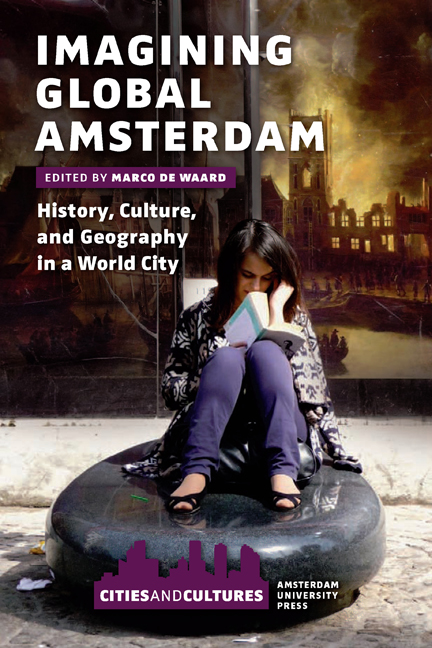11 - Amsterdam and/as New Babylon: Urban Modernity’s Contested Trajectories
Published online by Cambridge University Press: 19 January 2021
Summary
The present epoch will perhaps be above all the epoch of space. We are in the epoch of simultaneity: we are in the epoch of juxtaposition, the epoch of the near and far, of the side-by-side, of the dispersed.
– Michel Foucault, ‘Of Other Spaces’ (1986, 22)New Babylon ends nowhere (since the earth is round); it knows no frontiers (since there are no more national economies) or collectivities (since humanity is fluctuating). Every place is accessible to one and all. The whole earth becomes home to its owners. Life is an endless journey across a world that is changing so rapidly that it seems forever other.
– Constant Nieuwenhuys, ‘New Babylon: Outline of a Culture’ (1974, 161)As so many of the contributions to this volume attest, the meaning of Amsterdam's mythologized status as a bulwark of freedom, tolerance, and permissiveness is currently subject to much critical debate: who has access to which freedoms, and what kinds of risks might these freedoms involve? Is Amsterdam's celebrated permissiveness too limited, and therefore reserved for only certain segments of its population and city users, or does it extend too far, leaving society vulnerable to various forms of predation from within and from without? As the terms ‘access’, ‘population’, ‘limited’, ‘extend’, ‘far’, ‘within’, and ‘without’ suggest, most of these debates ultimately revolve around questions of space, including issues of access to specific public and private spaces, control of their material functions and symbolic meanings, and the balancing of productive and restrictive dimensions of borders and boundaries. While these questions are inevitably central to discourses of architecture, urban planning and design, and social policy, Amsterdam has emerged as a particularly charged locus of debate over issues of space, as the one-time ‘model city’ of social democracy is confronted by the challenges of globalization on at least two symbolic fronts: the first involves the tensions of cultural diversity in the wake of the 9/11 terrorist attacks in the United States, dramatized most notoriously by the murder of Theo van Gogh in November 2004,
- Type
- Chapter
- Information
- Imagining Global AmsterdamHistory, Culture, and Geography in a World City, pp. 201 - 218Publisher: Amsterdam University PressPrint publication year: 2012



